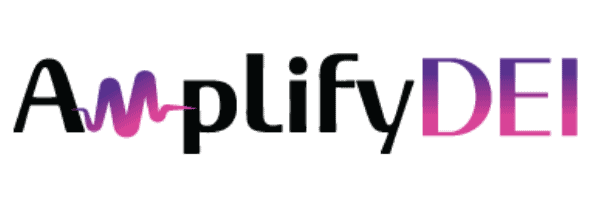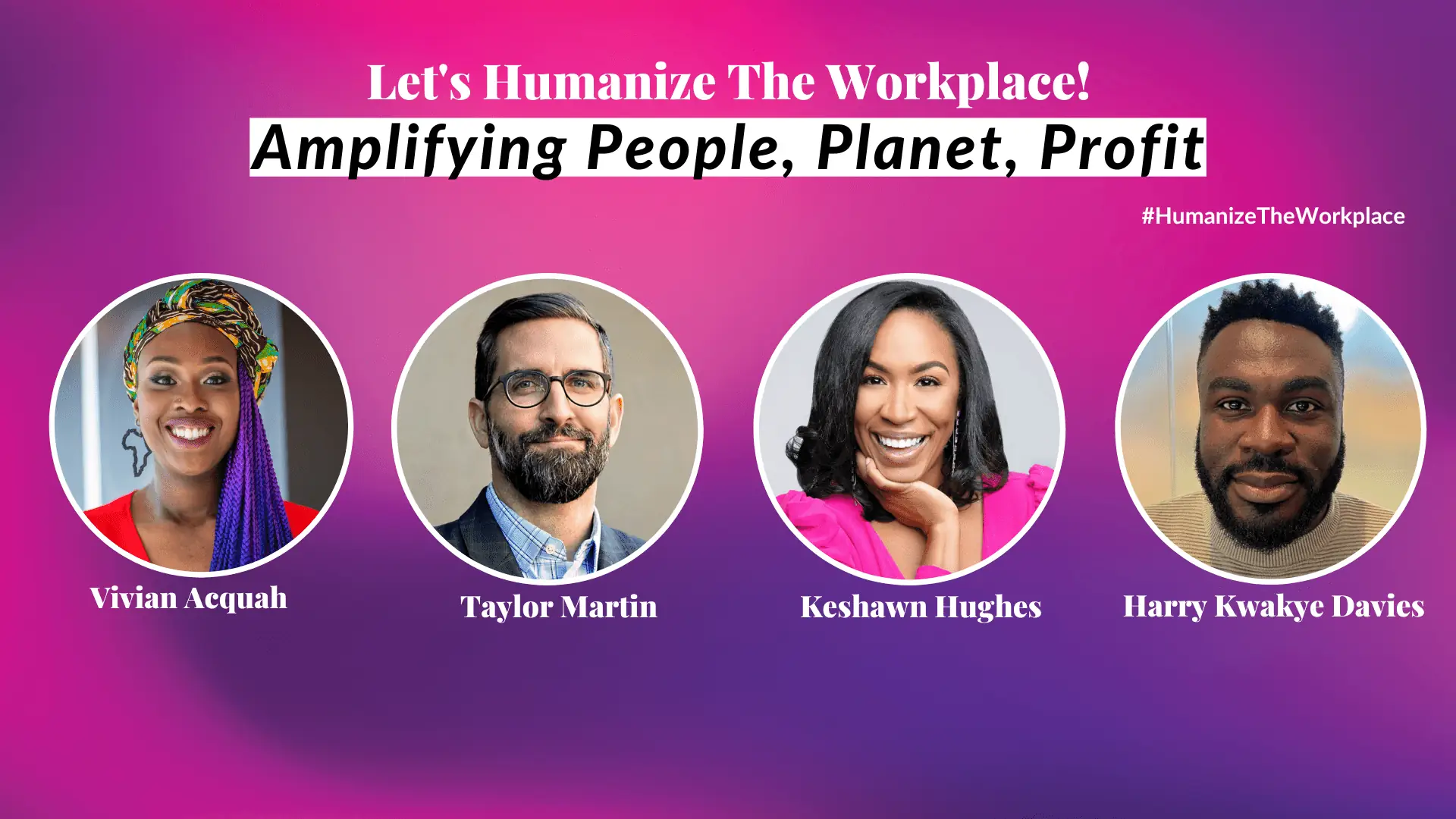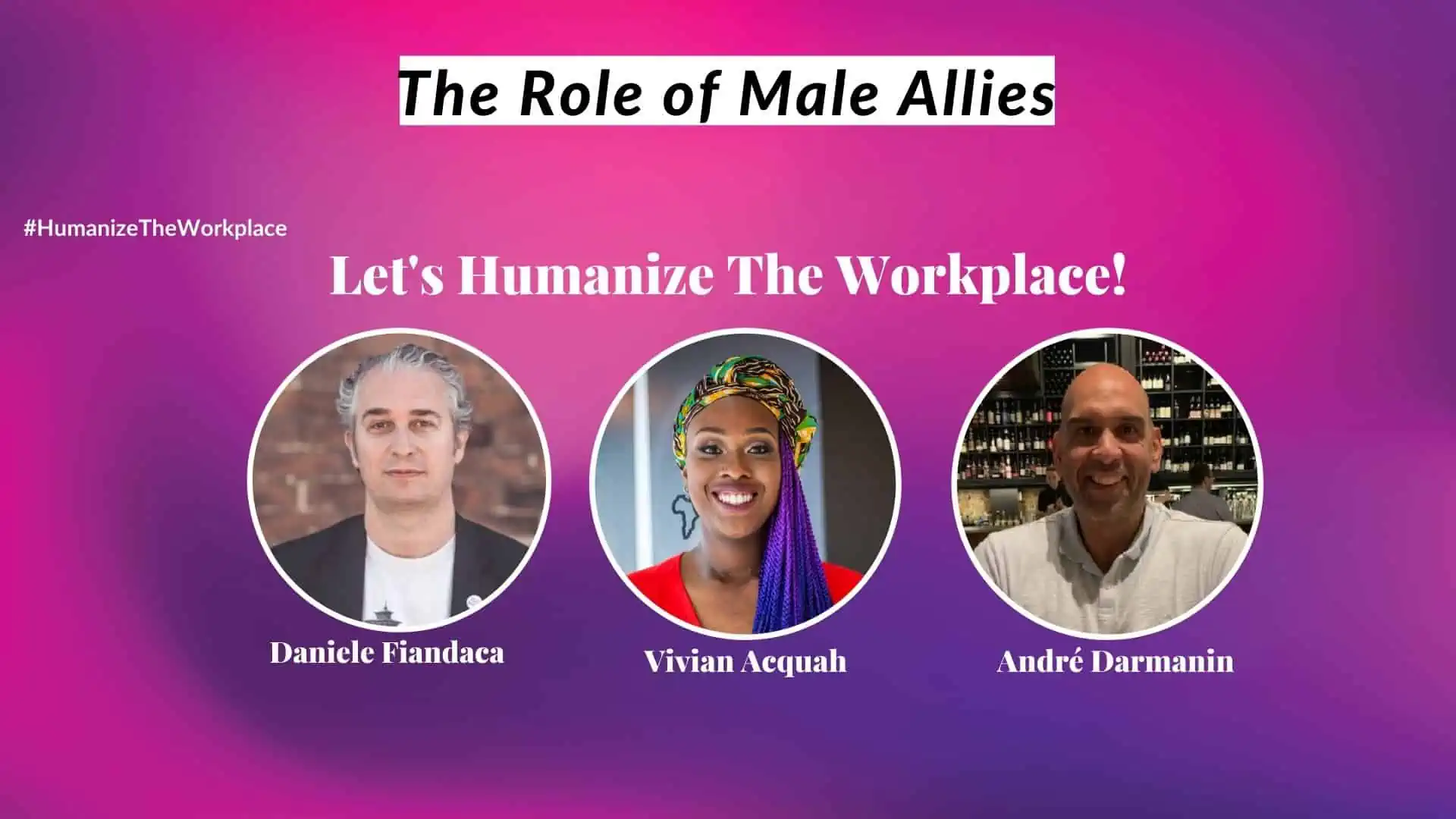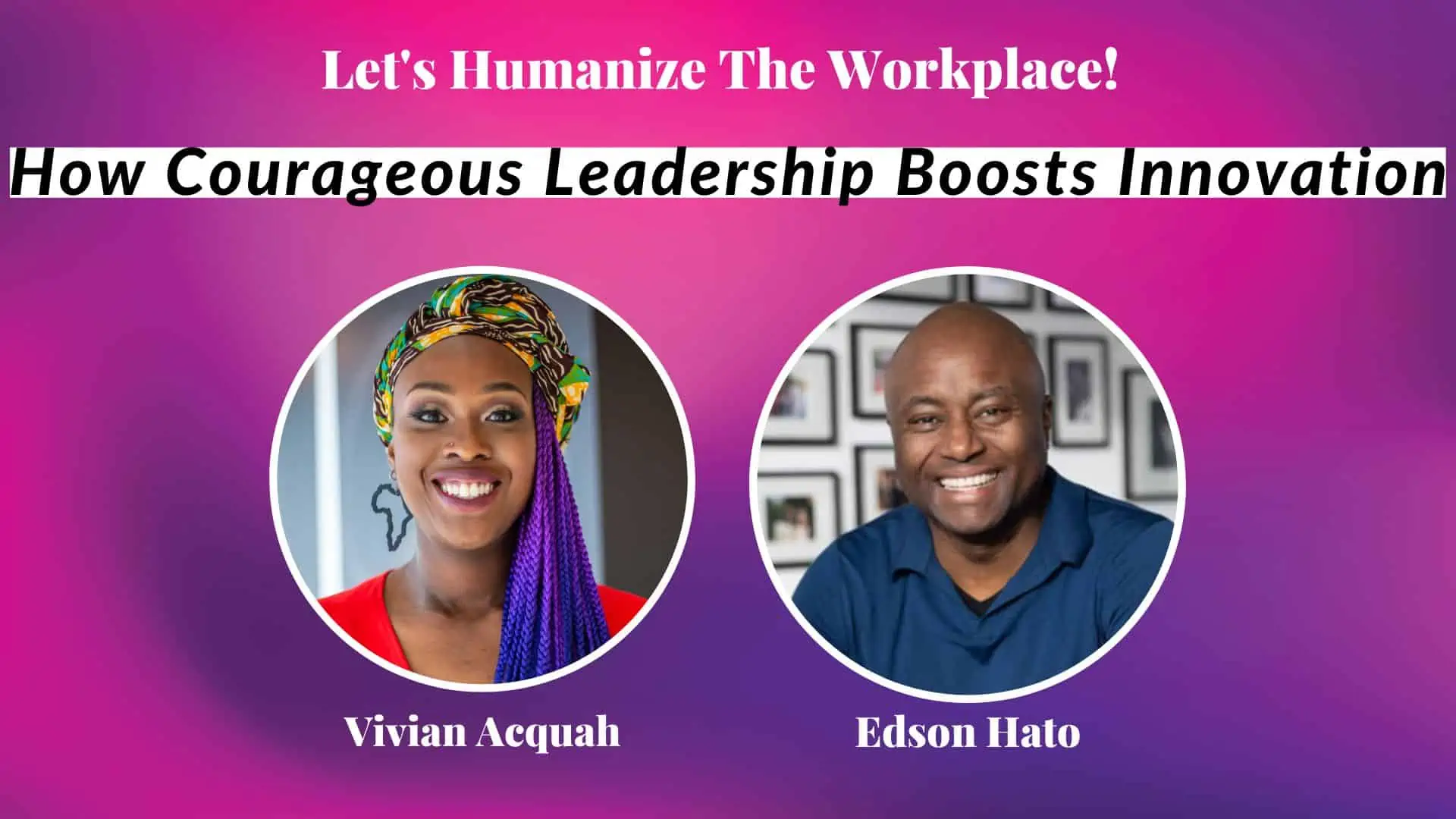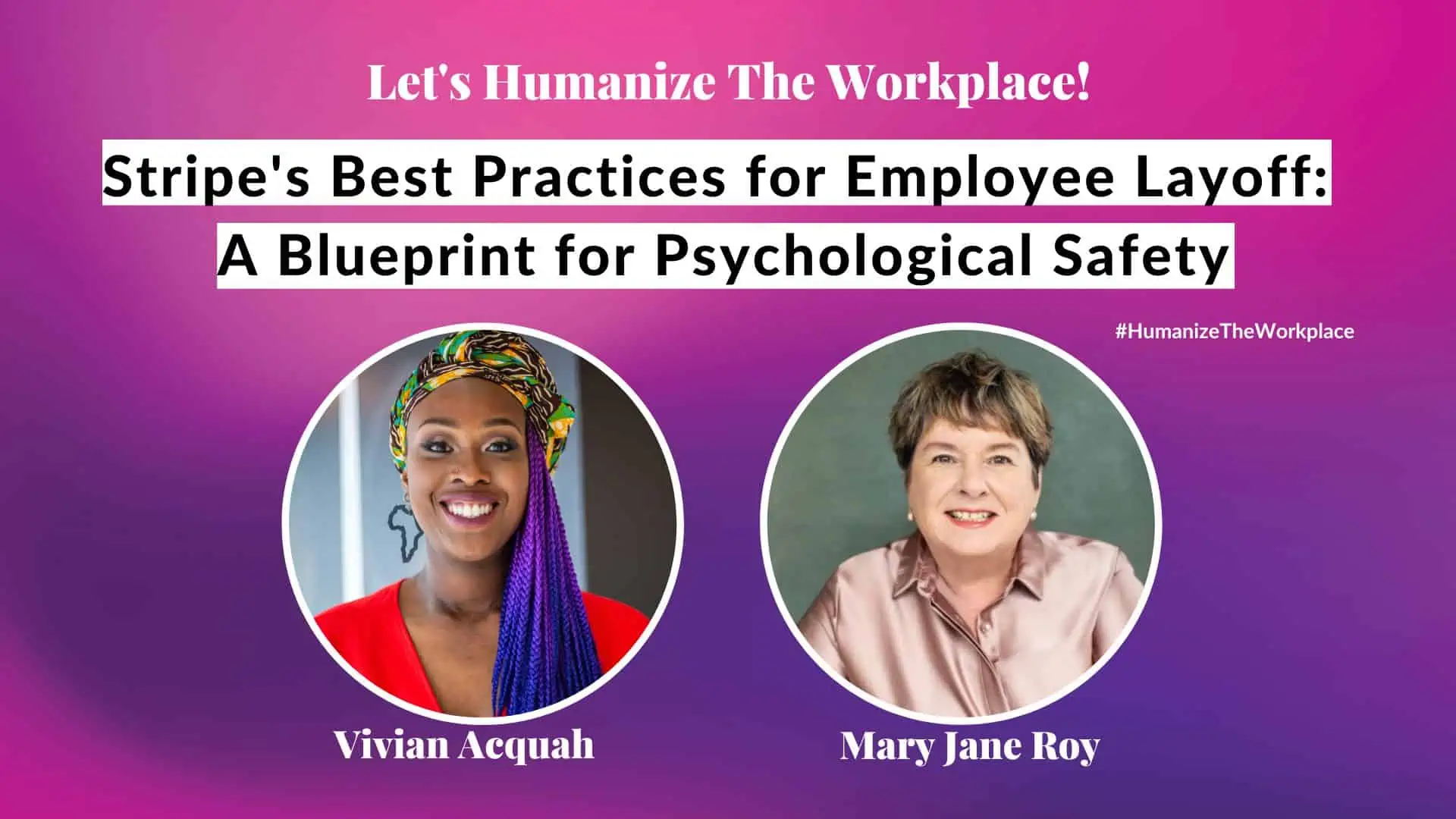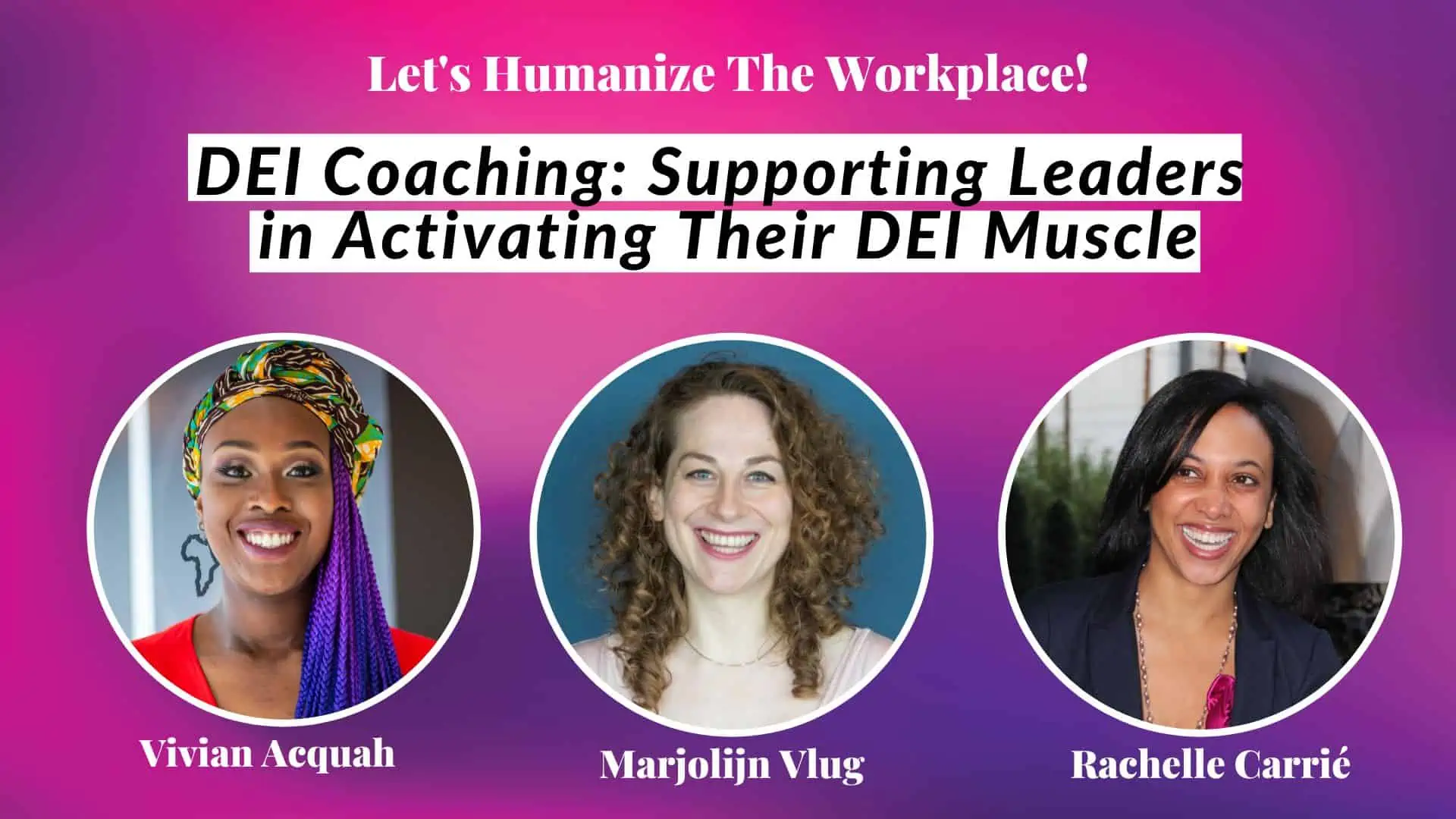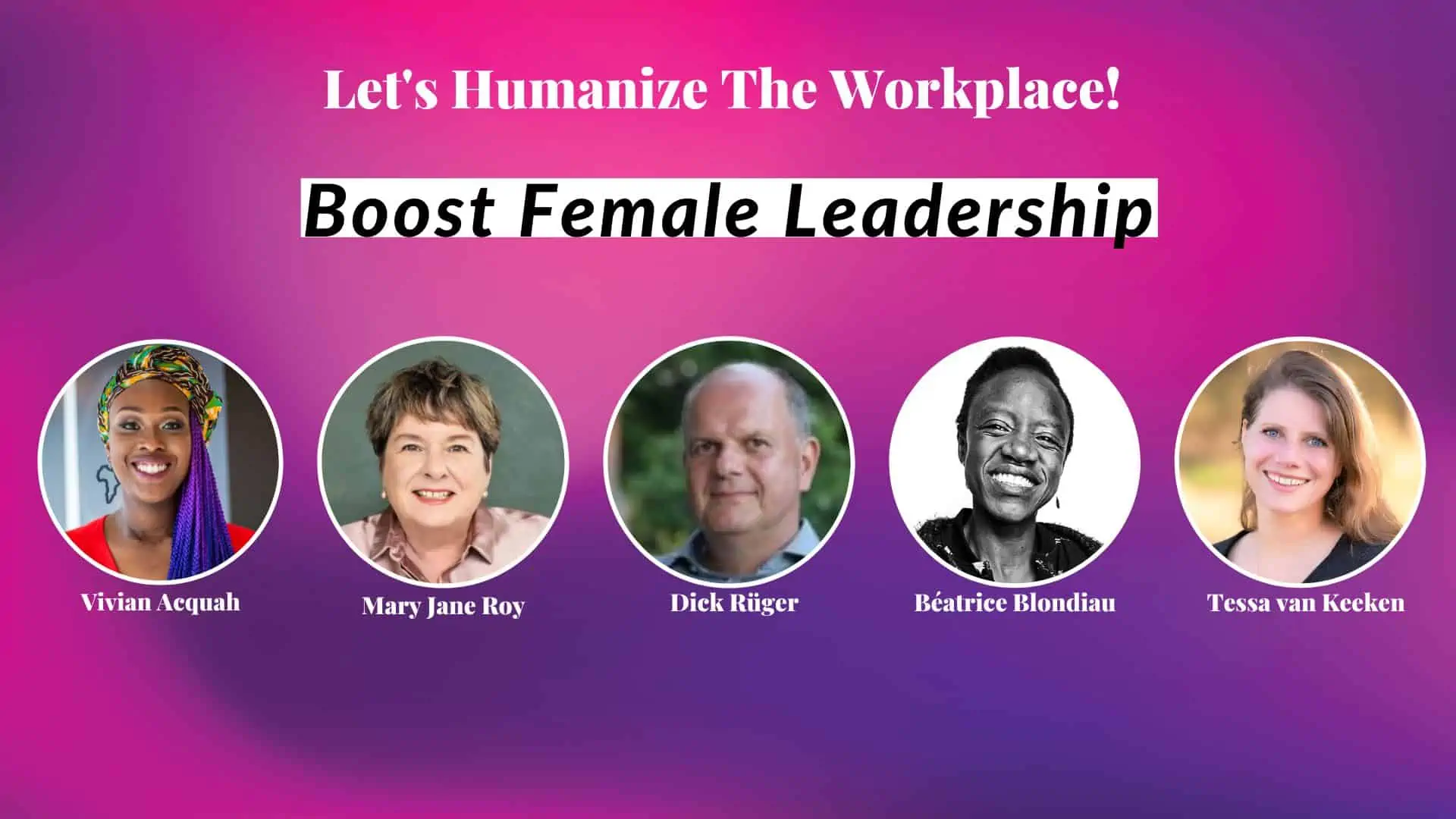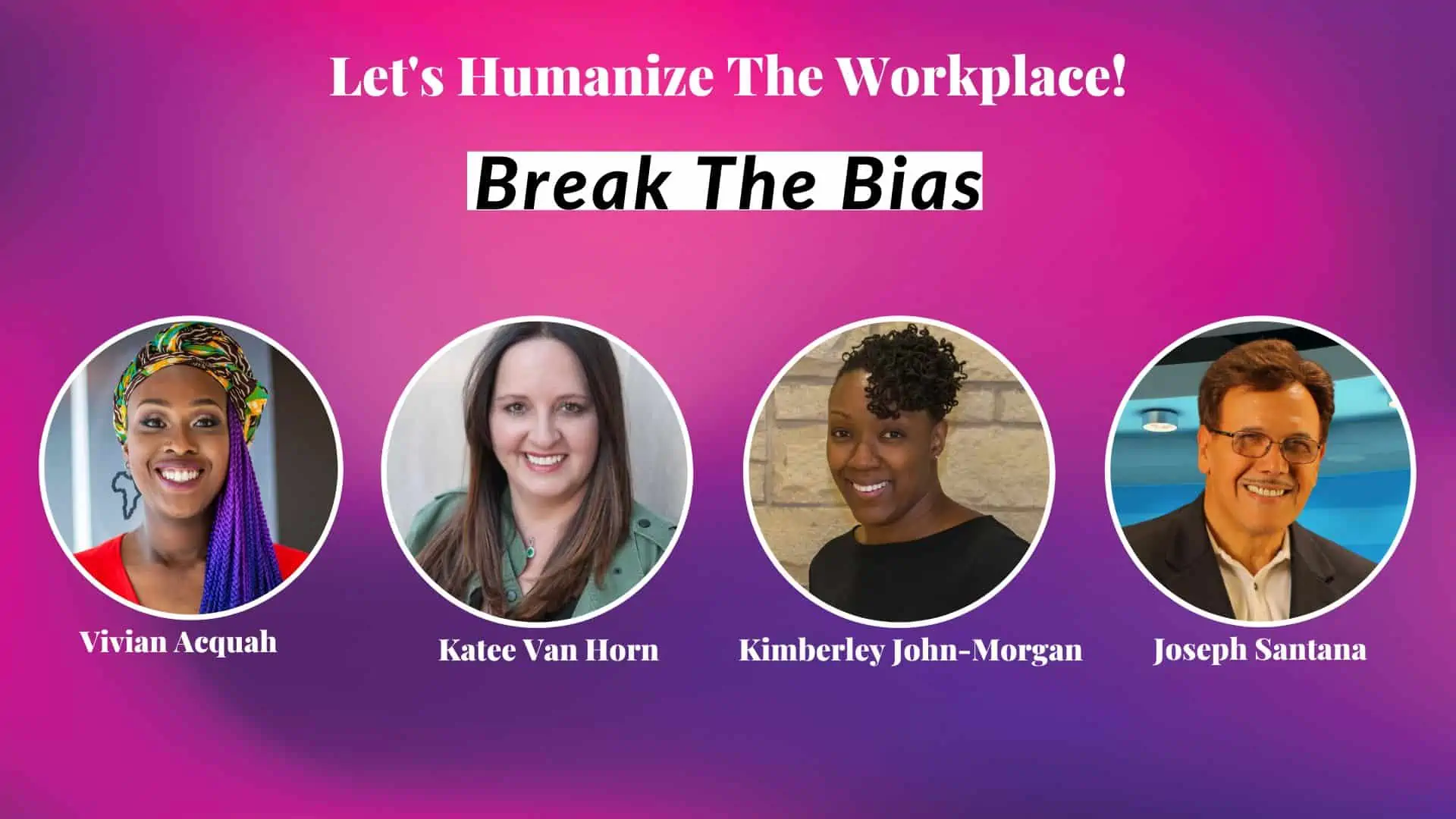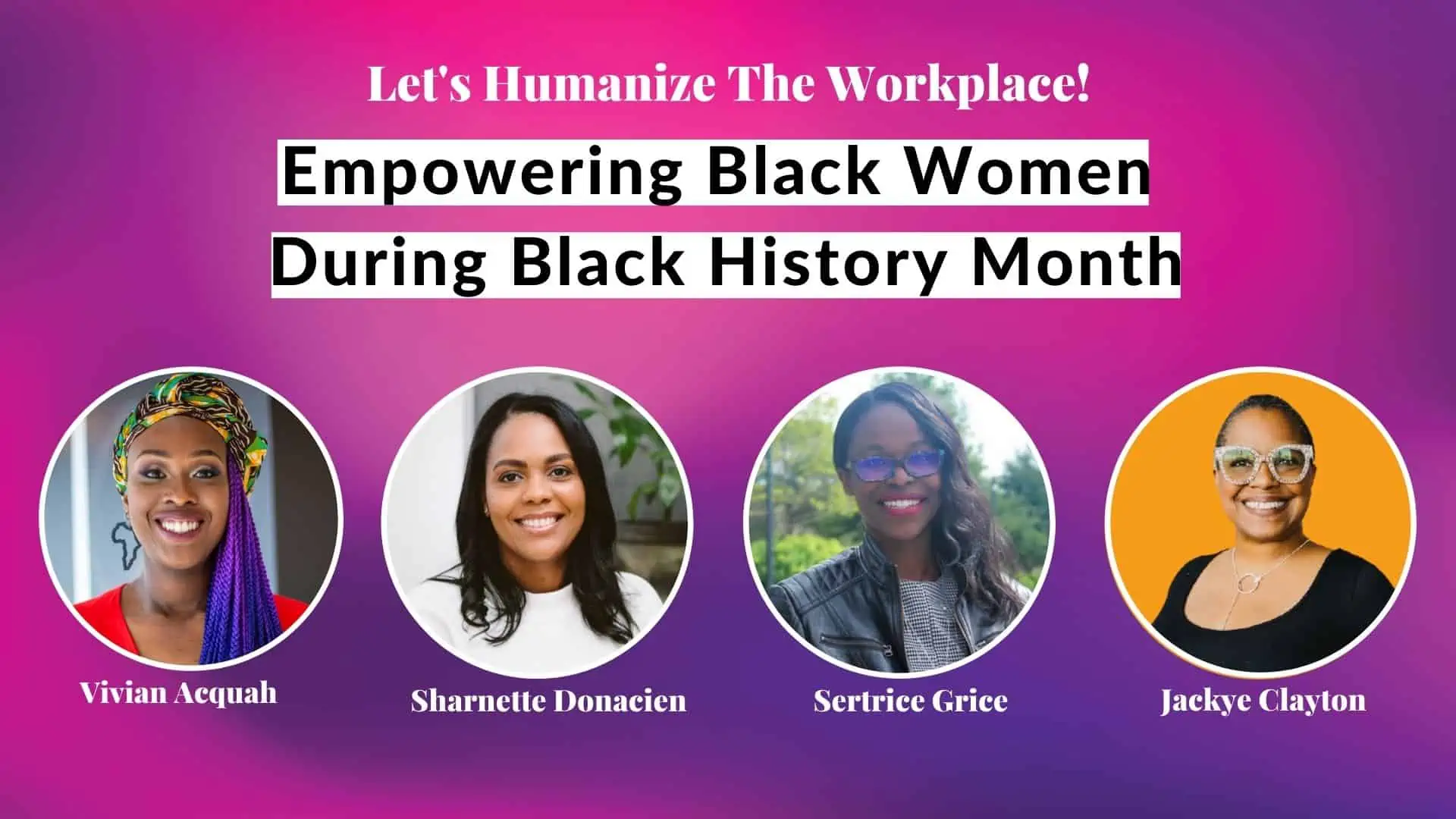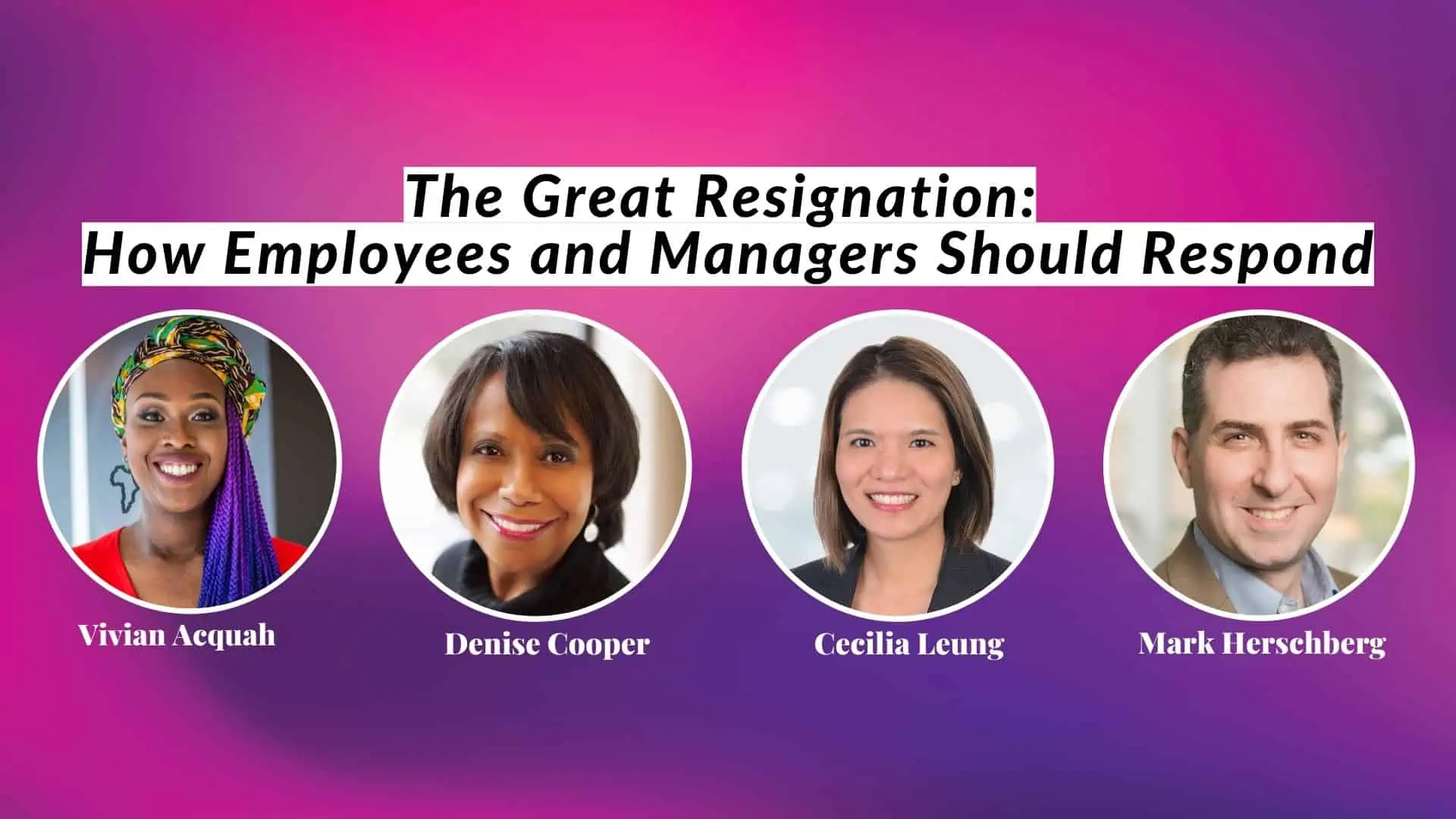Most CEOs now believe that sustainable practices are necessary for a company’s success, but shifting to more environmentally friendly and socially responsible can be difficult.
It requires changes in mindset, operations, and culture. Many organizations start with small steps toward sustainability, such as reducing energy consumption or waste production.
Disclosure: This post contains affiliate links. If you click through and make a purchase, I’ll earn a commission at no additional cost to you.
People Planet Profit
But what if there was an easier way to make an impact? What if you could amplify your People, Planet, Profit (3P) initiatives by integrating them into your organization’s products and services?
In this episode of Let’s Humanize The Workplace, the guest speakers: Taylor Martin, Keshawn Hughes, Harry Kwakye Davies, and Vivian Acquah will dive into the importance of amplifying people, the planet, and profit. Plus, how can organizations, leaders, and employees benefit from it?
Speakers
Vivian Acquah CDE® (host of the show) As a DEI Consultant/ Certified Diversity Executive, Vivian Acquah CDE® advises managers on how to keep their team members engaged, energized, and safe in a sustainable manner.
Taylor Martin leads a creative agency that helps companies make new friends by focusing on purpose-driven branding and web accessibility.
Keshawn Hughes is a neuro leadership coach, consultant, & NeuroSavvy™ Founder helping organizations end burnout culture, level up, & align with purpose.
Harry Kwakye Davies is an EMEA Procurement, Logistics & Supply Chain Professional. He’s also a DEI leader focused on building ERGs to thrive in the workspace.
Key Takeaways
There are several key takeaways from this episode:
- Organizations can leverage their people and underrepresented communities within the workspace to support each other and amplify the people, planet, and profit.
- DEI efforts should be woven into the organization’s mission, and leaders and employees should be held accountable for DEI’s success.
- Humanizing the workplace and prioritizing employees’ health and well-being is essential.
- The triple bottom line of people, planet, and profit is crucial for businesses to succeed, and a failure in one aspect can lead to failure in others.
- Collaboration within the organizations is vital to mobilize for DEI perspective and amplify people, planet, and profit.
- Procurement professionals should source from minority-owned and women-owned businesses for supplier diversity, and global organizations should be held accountable for fair practices in sourcing.
- Clients and customers are more likely to support mission-driven companies that prioritize sustainability, diversity, and inclusion.
- Leaders can benefit from prioritizing their health and well-being in decision-making, which can lead to healthier and more profitable outcomes for organizations.
Importance of Humanizing The Workplace
Throughout this episode, the speakers stressed the importance of “humanizing” the workplace. As Harry Kwakye Davies points out, humans make up the workplace dynamic, and when they are supported, included, and healthy, they can do better work.
Taylor Martin emphasizes the need to create accepting and inclusive environments for minority employees, such as those in the LGBTQ+ community. At the same time, Keishawn Hughes speaks to the importance of investing in STEM opportunities for individuals with disabilities or other marginalized groups.
“Sankofa: Reflecting on the Lessons Learned”: “All we can do is be transparent and share our actions and also look back and reflect on the lessons that we have learned because we can run. But it’s also needed as a Ghanaian proverb, Sankofa, where you go back and fetch and learn from that. Use that as a reflection as well.”— Vivian Acquah
Practical Steps to Take
The speakers also discuss the practical steps organizations can take to “humanize” their workplaces. This includes creating safe spaces for employees to succeed, intentionally hiring from minority communities, and implementing fair and unbiased processes – such as diverse interview panels and inclusive job descriptions.
“And I just think once again about neuroscience. Our brains are so simple that we do what we get rewarded for doing, even if not in alignment with our goals. Even as we’re changing, we’re aging. Things don’t work the way they used to. But we still have the expectation. We still have the memory of how we used to be. And we want to continue and move that forward without making any changes in our environment, any changes in what we take in information or otherwise.” – Keshawn Hughes
ERG Success
Harry Kwakye Davies shares Uber’s success story in implementing Diversity, Equity, and Inclusion (DEI) efforts. The company formed an employee resource group to identify and support minority communities during turbulent times, and the CEO made it clear that the success of these groups was tied to the success of VPs and executives sponsoring them.
“As a procurement professional, I do my best to increase the focus on supplier diversity and reaching out to minority-owned and women-owned businesses. The aim is to allocate a certain percentage of the spending towards uplifting these communities. Additionally, companies need to be aware of sustainable and regenerative timelines, as well as holding leaders accountable for meeting these environmentally conscious goals.” Harry Kwakye Davies
Doing the Right Thing
While the speakers acknowledge that prioritizing people may come at the expense of economic growth, they also stress the importance of the triple bottom line – people, planet, and profit – as a three-legged stool. If one of these legs is weak, the entire structure will collapse.
Investing in people can drive profits, and companies that focus on diversity, equity, and inclusion are more likely to see success in the long term.
“The Triple Bottom Line: People, Planet, and Profit”: “If you don’t have one of those legs working, the stool will collapse. And that’s just something that the way I see it. And so now I think it’s a coming of age. Like we have finally been forced as a people to realize the people component of business and how incredibly valuable it is for the progress of any company.” Taylor Martin
Conclusion
In conclusion, “humanizing” the workplace is socially responsible and beneficial for organizations. Employees who feel valued, safe, and included in their workspace are more productive, engaged, and loyal.
By prioritizing people, organizations can also reap the benefits of a healthier and more profitable workplace – which makes sense for business and the betterment of society as a whole.
Need support in Amplifying DEI from within?

The Amplify DEI Card decks are designed to support you in creating more inclusive environments and encouraging conversation. Increase your self and team awareness with the Amplify DEI Cards.
Click here to learn more about the Amplify DEI Cards.
Latest Post
- The Role of Male Allies: A Conversation on Inclusive Leadership and Cultural Intelligence
- How Courageous Leadership Boosts Innovation
- Powerful Employee Resource Groups (ERGs): Driving Organizational Success
- Stripe’s Best Practices for Employee Layoff: A Blueprint for Psychological Safety
- Amplifying People Planet Profit Now!
